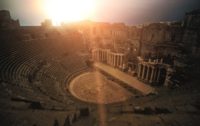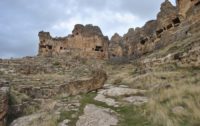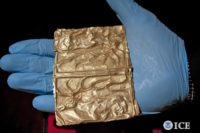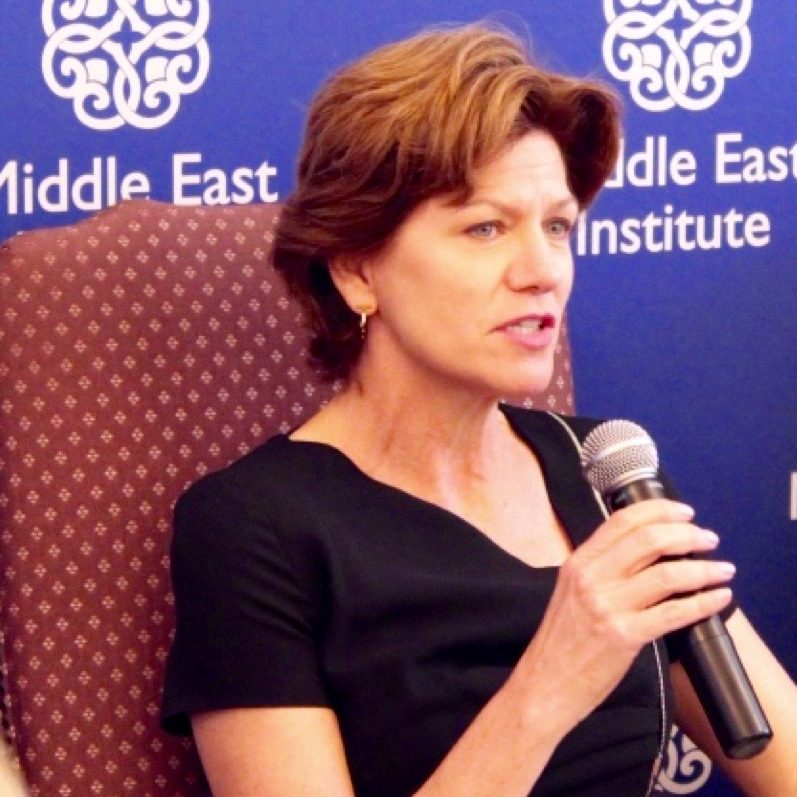An Interview with AC Think Tank Author Seán Fobbe, Part I

In the first of a three-part series, we sat down with Seán Fobbe, Chief Legal Officer of RASHID International and author of the AC’s How to protect outstanding cultural heritage from the ravages of war? Utilize the System of Enhanced Protection under the 1999 Second Protocol to the 1954 Hague Convention. Fobbe comments on the groundbreaking work of RASHID International, a landmark report documenting cultural heritage destruction during the Yazidi genocide, and the intersection of human rights and cultural heritage preservation.
How did you get involved with RASHID International, and what do you find most rewarding about your work there?
I vividly remember my anger at seeing the destruction of Nimrud on the news, left with no choice but to watch and do nothing. Fortunately, Dr. Simone Mühl, the founding President of RASHID International, reached out to me shortly after. Under her leadership, I had the opportunity to help create RASHID International in 2015 and 2016. Probably the most rewarding aspect of working for RASHID International is the consummate skill and professionalism of our team. I work with some of the premier experts and young professionals in the field and the results we’ve been able to achieve in these few short years have been nothing short of amazing.
Tell us about some of your major projects.
On August 2nd, 2019, we published a landmark report documenting our investigation of cultural heritage destruction during the Yazidi genocide. We wrote and submitted a total of six reports to the UN Human Rights Council, UN Special Procedures, and the Universal Periodic Review, quite a few of which have been cited by the UN. We published a lengthy analysis of the situation of cultural heritage in Iraq post-Daesh in the peer-reviewed International Journal of Heritage Studies. We issued a call for Iraq to ratify the 1999 Second Protocol in 2018, and in 2019, at the 20-year anniversary conference of the Second Protocol, the Ambassador of Iraq to UNESCO announced that Iraq would ratify the treaty. In 2019, we obtained special consultative status with the United Nations Economic and Social Council, granting us the right to speak before the UN Human Rights Council.
Following a major earthquake in the region, Dr. Simone Mühl organized emergency reconstruction of the Slemani Museum and two heritage sites in Sulamaniyah, Iraq; this work prevented more serious damage. Cooperation with the Monuments of Mosul project, led by Professor Karel Novacek, and the Digital Cultural Heritage Group, led by Dr. Rozhen Mohammed-Amin, have and continue to yield high-quality results and opportunities. More exciting projects are currently underway.
You recently published a landmark report on the Yazidi genocide, could you tell us more about it?
We found that the public and academic view of the genocide and persecution of Yazidis by the Islamic State was dominated by themes such as murder, torture, and sexual slavery, but did not consider the deeds in their full context and complexity. The essence of genocide goes far beyond the destruction of the mere physical – perpetrators want to erase all traces of a social group, including the tangible and intangible memory of it. The final step is the denial that a genocide ever happened.

To explore and document this facet of the genocide, we partnered with the global Yazidi organization Yazda and the Endangered Archaeology in the Middle East and North Africa Project (EAMENA) to collect and publish high-quality evidence of cultural heritage destruction during the Islamic State’s genocide against the Yazidis. It was so much more than just murder, torture and slavery. The perpetrators tried to erase the very existence of Yazidi identity through a coordinated policy of brainwashing of children, rape of women and girls, punishment for the practice of Yazidi customs, and destruction of cultural and religious heritage sites.
The resulting 117-page report, Destroying the Soul of the Yazidis: Cultural Heritage Destruction during the Islamic State’s Genocide Against the Yazidis, introduces the Yazidis and their culture, gives an overview of the events, explains the criminality of acts of heritage destruction within the international legal framework, documents in detail 24 of the 68 Yazidi heritage sites reported to have been destroyed, and offers conclusions and recommendations to the international community to ensure accountability and assist the Yazidi community in recovering. So far we’ve had great responses from all quarters and are pushing hard to ensure accountability of Islamic State commanders and fighters under all applicable criminal provisions.
Can you comment on the intersection of human rights and cultural heritage preservation?
I believe that the framing of cultural heritage preservation in terms of human rights protection has been one of the most beneficial developments in the past few decades. It is difficult to justify the amount of resources required for state-of-the-art heritage protection measures for aesthetic or historical reasons alone. Understanding cultural heritage in terms of human rights squarely orients the conversation where it should be: about the human element of cultural heritage. The point is not to preserve sticks and stones. The point is to preserve human meaning for the sake of those who thrive on it. We explore this theme at length in our article, Heritage and cultural healing: Iraq in a post-Daesh era, published in the International Journal of Heritage Studies in 2019.
Seán Fobbe is Chief Legal Officer of RASHID International, a worldwide network of archaeologists, cultural heritage experts, and other professionals dedicated to safeguarding the cultural heritage of Iraq. He leads a team of elite lawyers in their fight to secure the international rule of law, end the destruction of Iraqi heritage, and establish accountability for international crimes. RASHID International is a registered and audited non-profit organization headquartered in Germany.
Seán graduated from Ludwig-Maximilians-Universität with a degree in law, earning an award for exceptionally outstanding achievements in international law and a coveted general distinction. He specializes in international law, with a focus on international humanitarian law, human rights law, and cultural heritage law.
Headshot courtesy of www.economy-business.de






